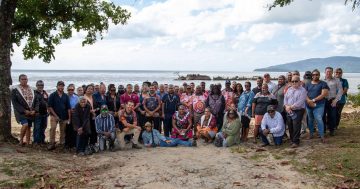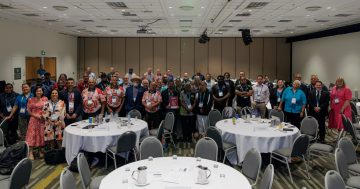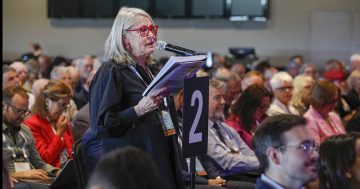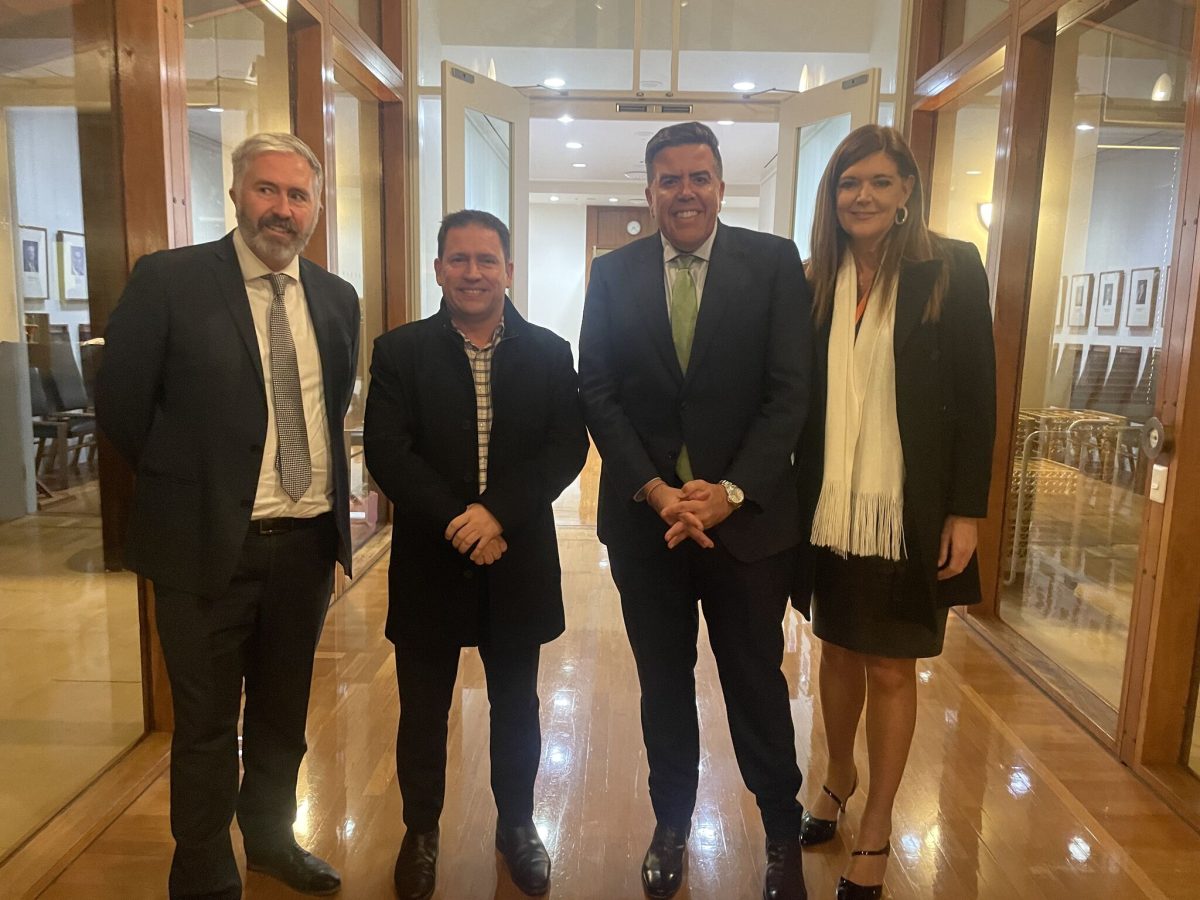
A few months ago, Queensland mayors such as Matt Burnett (second from left) and LGAQ CEO Alison Smith were given a warm reception in Canberra by House Speaker Milton Dick (second from right) and Assistant Minister for Regional Development Anthony Chisholm. Photo: LinkedIn.
With the Queensland election underway, two peak bodies have come together in a major push to urge the State Government to provide critical funding to tackle the housing crisis.
The Local Government Association of Queensland (LGAQ) and the Urban Development Institute of Australia’s (UDIA) state branch have lodged a joint request for adequate ”trunk infrastructure” to unlock housing supply and support the goal of delivering one million new homes by 2046.
Trunk infrastructure relates to critical items servicing multiple users. For example, a large road may be trunk infrastructure, while an access road to a particular development will usually be non-trunk.
Earlier this year, the LGAQ published research predicting its councils will face a $2.2 billion bill over the next four years if the state does not increase the cap on how much councils can charge property developers for the infrastructure they said was vital for liveable communities.
This week its CEO Alison Smith reaffirmed this potential “funding black hole” with UDIA Queensland CEO Kirsty Chessher-Brown.
“We are in a cost-of-living crisis, yet the risk is that if councils can’t fund the infrastructure black hole then it will be ratepayers who will be asked to – unless the State Government steps in to assist,” Ms Smith said.
Despite the big focus on cost-of-living relief in the lead-up to this election, Ms Smith said funding the current trunk infrastructure shortfall did not have bipartisan support. Only the Liberal National Party has committed to a $2 billion trunk infrastructure package, which the LGAQ welcomed back in June.
“Councils are the leastfunded level of government, with limited revenue options; for example, councils don’t collect GST, stamp duty or royalties – they collect rates, dog registrations, fees and charges,” Ms Smith said.
“Either land tax revenue, which is tipped to reach $2.32 billion this financial year, or stamp duty revenue, which exceeded forecasts by an additional $3.5 billion, would more than adequately fill the funding black hole.”
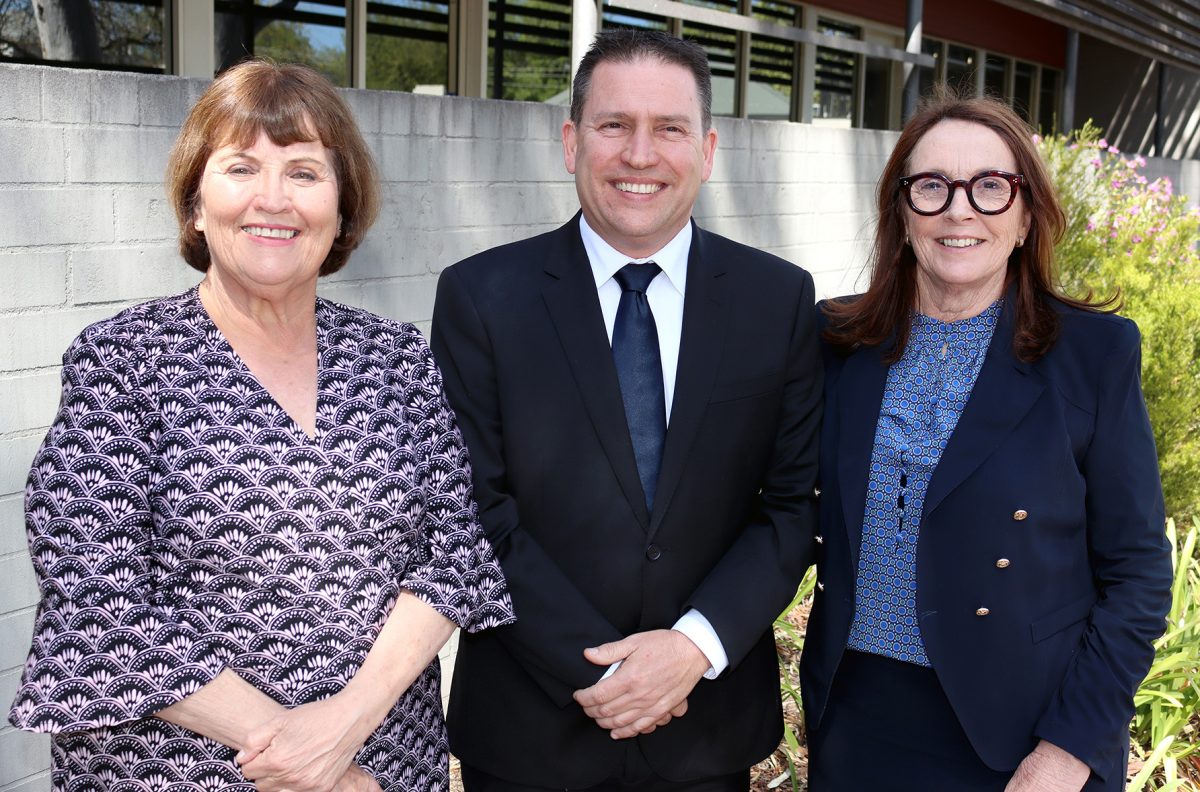
Gladstone Mayor Matt Burnett, who is now also president of the ALGA, with ALGA vice-presidents Crs Darriea Turley (left) and Karen Chappel. Photo: ALGA.
Before the organisation’s requests, the Queensland Council of Social Services (QCOSS) released its own report highlighting three key roles local councils can play in addressing the state’s housing crisis.
Its main pitch for councils to increase affordable housing and prevent/relieve homelessness involves three avenues: supporting rough sleepers; integrating social housing into new developments through planning regulations; and partnering in the direct delivery of social housing, particularly involving council-owned land.
The report cites examples from leading councils, which highlight the importance of industry networks and peak bodies to overcome the perennial challenges of capacity and resourcing for local government.
Among the examples was Gladstone Regional Council, whose Mayor, Matt Burnett, was recently made president of the Australian Local Government Association (ALGA).
It was celebrated by QCOSS for its audit of council-owned land to identify opportunities for new housing projects, particularly those unsupplied by the market. This includes diverse and lower-cost options that might be otherwise financially infeasible.
Importantly, the audit has been carefully embedded in the council’s strategic plans, increasing alignment with the council’s broader priorities and ensuring ‘’buy-in’’ from across the organisation.
QCOSS, like the LGAQ and UDIA, is also calling on the State Government to devolve more policy setting to the local level, ”where those policies align with the state’s response to relevant housing challenges”.
“Inadequate funding and/or staff capacity are the main factors that limit the scope for local council contributions in these areas,” the report says.
“Many councils are in no position to take on roles beyond their legislated functions, no matter how important they may be, particularly where those roles absorb significant staff time and/or council funds.
“However, the contributions to easing the housing crisis exemplified by the case study examples demonstrate that local government can play a positive role in this area.”




